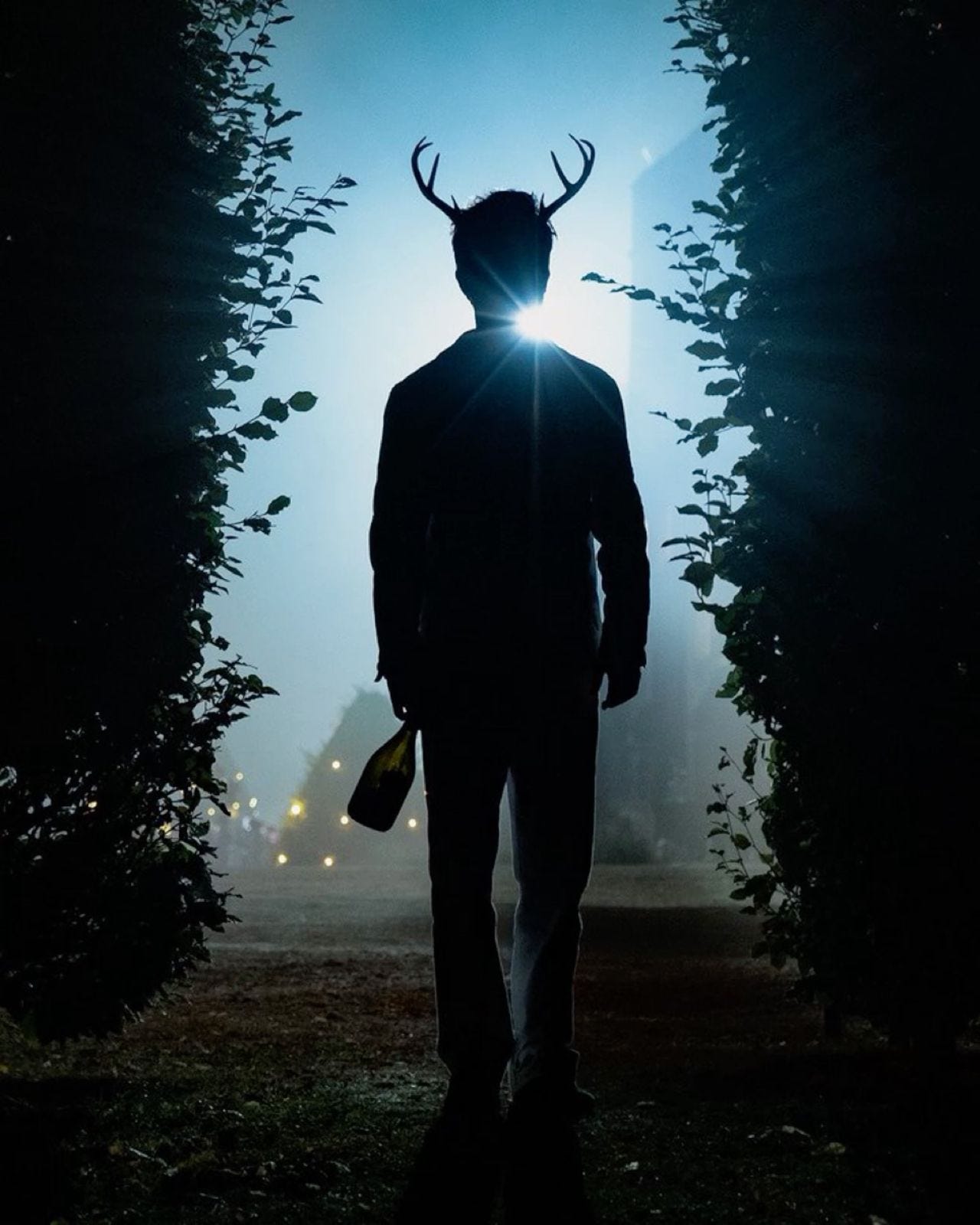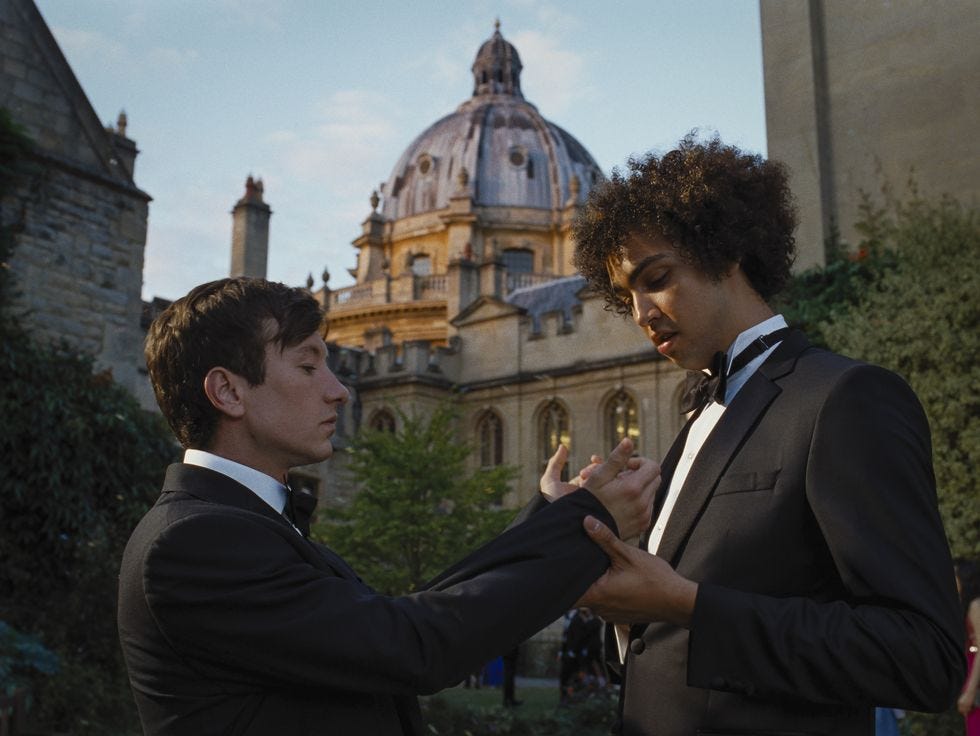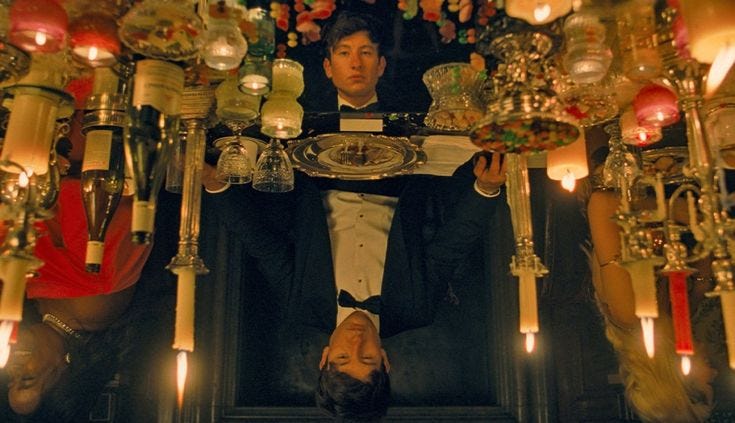The internet continues to succumb to the Saltburn-induced hysteria, even birthing the infamous Jacob Elordi bathwater candle. As a closet connoisseur of dark and moody films, it is a hysteria I understand well. The film has garnered its fair share of critics who label it a poorly rehearsed Shakespearean tragedy with empty provocations and shocking theatrics. I completely disagree.
I can't recall the last time I was thoroughly entertained by a movie like this – it was an immersive, unnerving, and hypnotic journey. Clever camera angles create a sense of voyeurism as the audience peers through doors or observe individuals from a distance.
And the costume design, courtesy of Sophie Canale, is sublime. She perfectly resurrects the essence of indie sleaze, bohemia, and extravagant party wear. It’s the most talked about film of 2023, prompting a surge of how-to guides on how to dress like the iconic noughties.
Major film spoilers to come
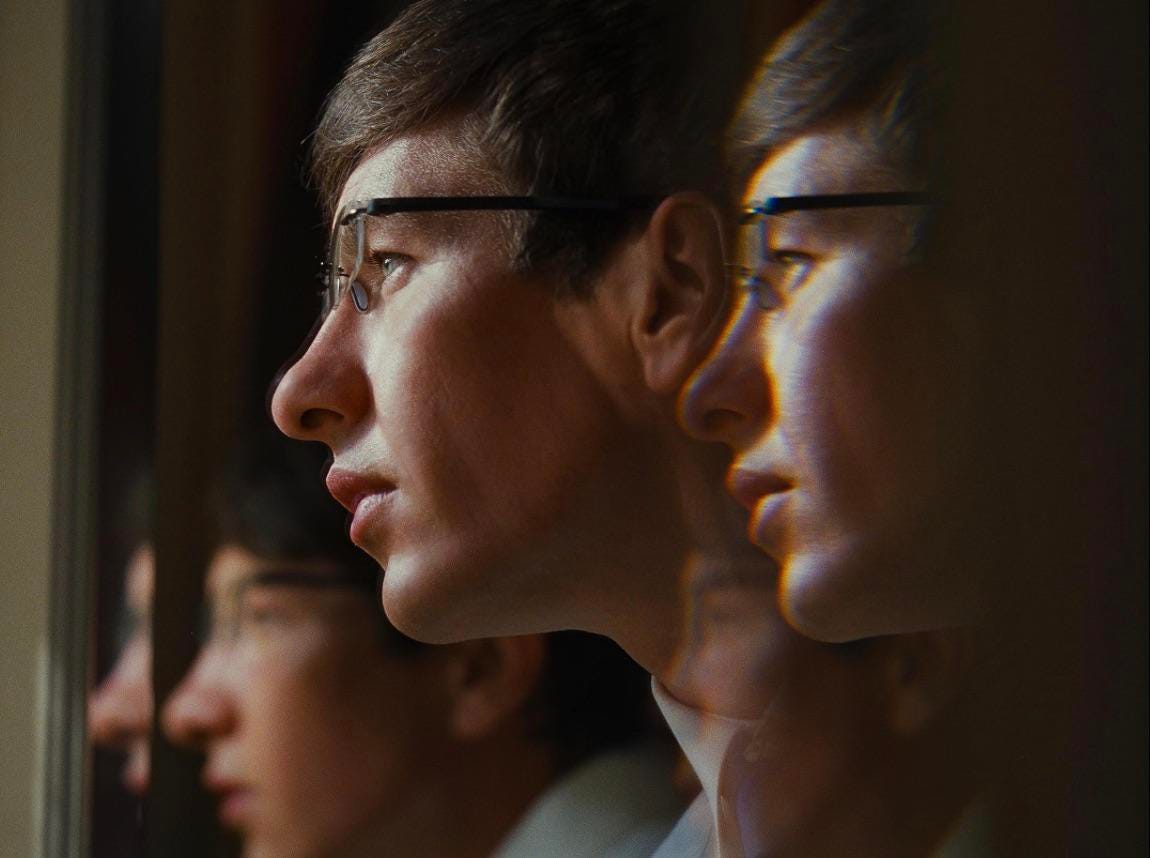
Sacred Dress Codes
"Costumes are the armor of a character, revealing the strength and vulnerability within." - Colleen Atwood
The early 2000s were not good years for fashion. If you were coming of age during that time, however, you might experience a wave of nostalgia watching Saltburn.
Saltburn's most memorable scenes often revolve around sacred dress codes of upper class Britain. The film follows Oxford student Oliver Quick, played by Barry Keoghan, who develops an intense obsession with his affluent and attractive classmate Felix Catton, portrayed by Jacob Elordi. Costume designer, Sophie Canale highlights the significant transition in Oliver's wardrobe early on, as he arrives at university in a blazer and scarf, attempting to conform to a perceived dress code. Oliver’s posh clothing contrasts sharply with his upper class peers who exude confidence in their shabby attire. This is a source of tension, particularly with the malicious cousin Farleigh, portrayed by Archie Madekwe, who mocks Oliver's slightly oversized rental tux before an Oxbridge dinner.
As Alexander McQuint writes in a fascinating piece on Substack, all of the characters’ fashion choices reflect their unique personalities. Here he is on Felix:
When Felix is giving Oliver a tour around Saltburn, you see him barefoot, which is a great detail in showing that he is at home and very comfortable with his environment. There’s also a scene during this tour where Felix leaves Oliver a suit for their black tie dinners, because he’s aware that Oliver probably doesn’t have one readily available. However, he does assume that he has cuff links, which, of course, he doesn’t. While Felix is probably the most self aware out of his whole family, it still shows some ignorance in understanding people who do not live in the same bubble that he does.
My view is that Oliver’s evolving attire is by far the most interesting. As he slowly begins to learn the rules of the upper classes, Oliver shifts towards more confident and casual ensembles. The pièce de résistance is Oliver's birthday party costume, a meticulously curated outfit with profound symbolic weight. The antlers and embroidered jacket make a striking statement, drawing inspiration from British folklore with their depiction of oak leaves and acorns—a motif often associated with power and victory.
Adding another layer of symbolism, moths appear both on his jacket and a necklace. The insects serve as a metaphor, portraying Oliver as a moth irresistibly drawn to the flame that is Saltburn. The moths also foreshadow a later event when Venetia describes him as a moth putting holes into everything, hinting at the potentially destructive consequences of his infatuation.
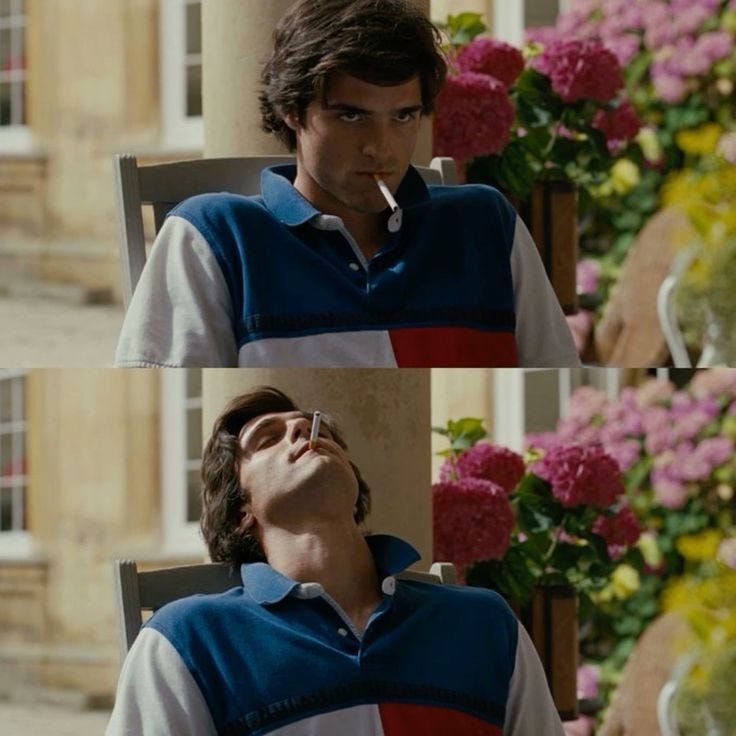
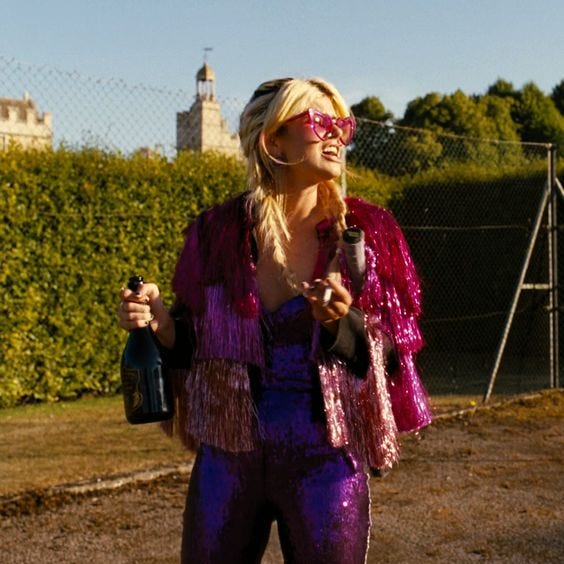
THE POWER OF UNDRESSING
"Nudity, when thoughtfully incorporated into a film, becomes a costume of truth, challenging societal norms and embracing the rawness of the human condition."- Jane Campion
The fashion of Saltburn reaches its climax in a shocking final scene where Oliver dances naked to Sophie Ellis-Bextor’s "Murder on the Dancefloor,” while snorting cocaine. Like most fans of this film, I’ll never be able to hear that song without thinking of Oliver’s victory dance. Oliver wins, and the elites lose (or are murdered). This is exactly the kind of reaction writer-director, Emerald Fennell wanted:
“We wanted to create this internal struggle, where you like what you see but you also don’t like it, or maybe you feel bad for liking it,” Sandgren says- Saltburn: Weaving a Web of Obsession
The act of shedding clothing marks Oliver's final transformation. He is now the owner of Saltburn and needs no clothes at all.
Fatally Yours,
Betsy Cohen




